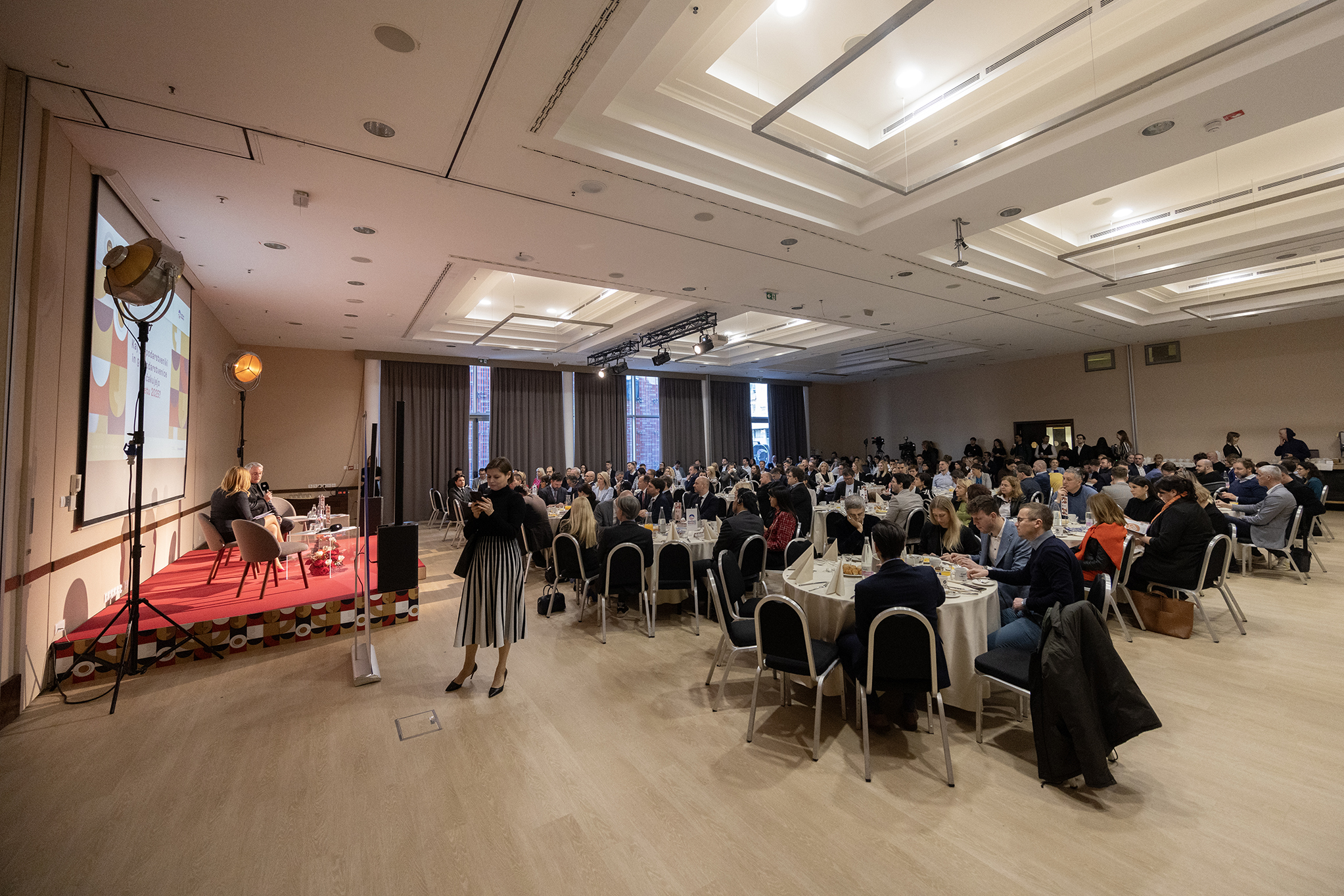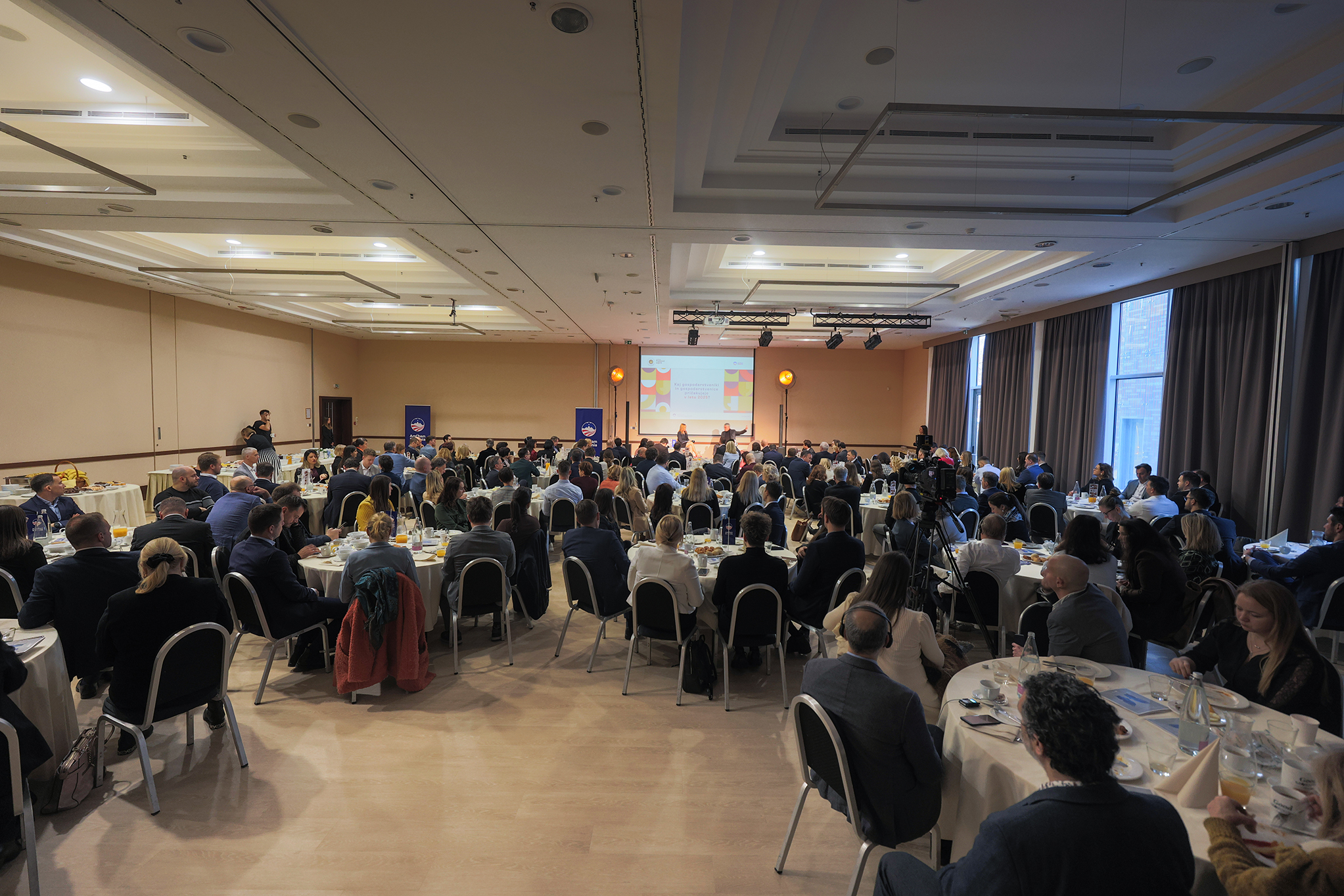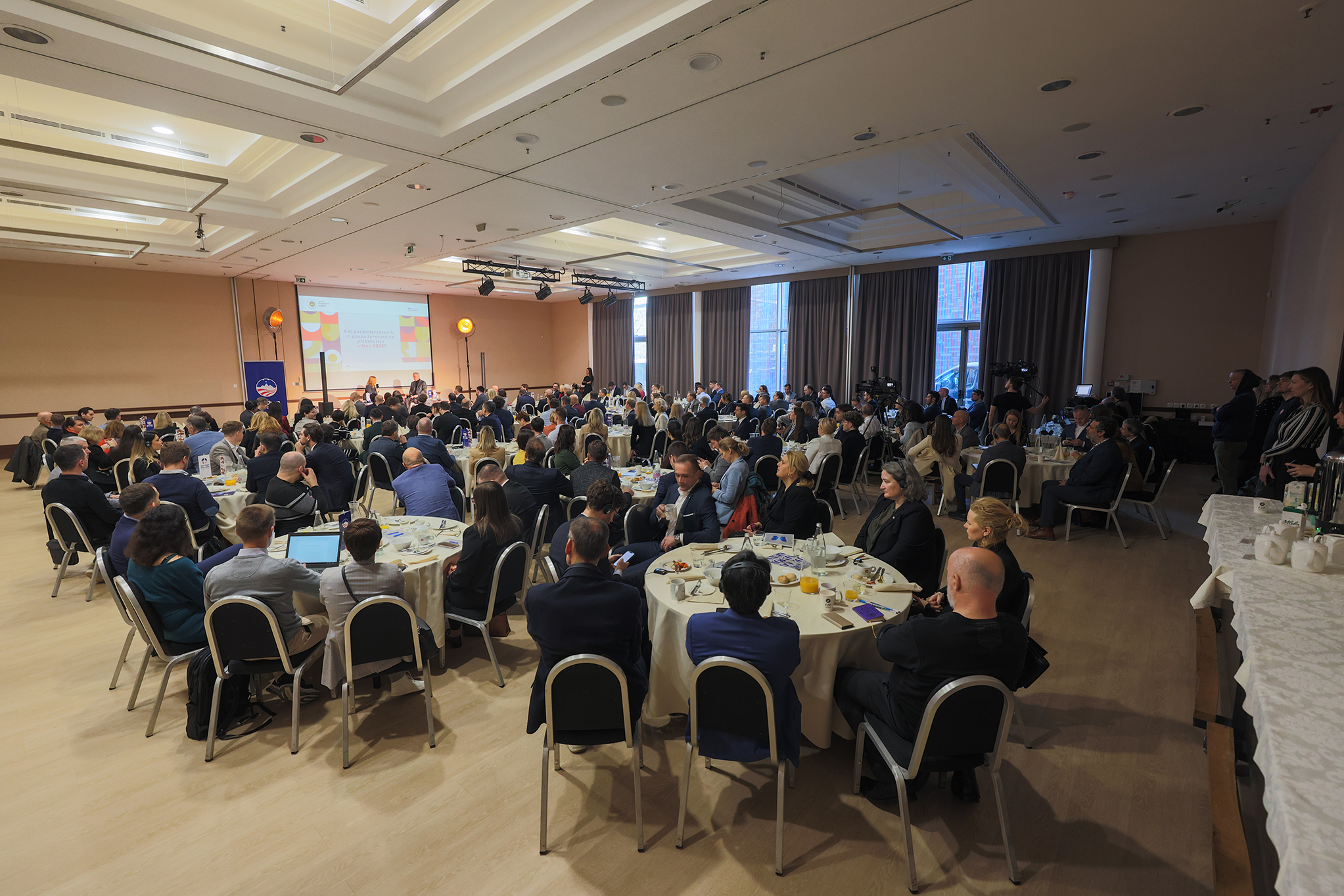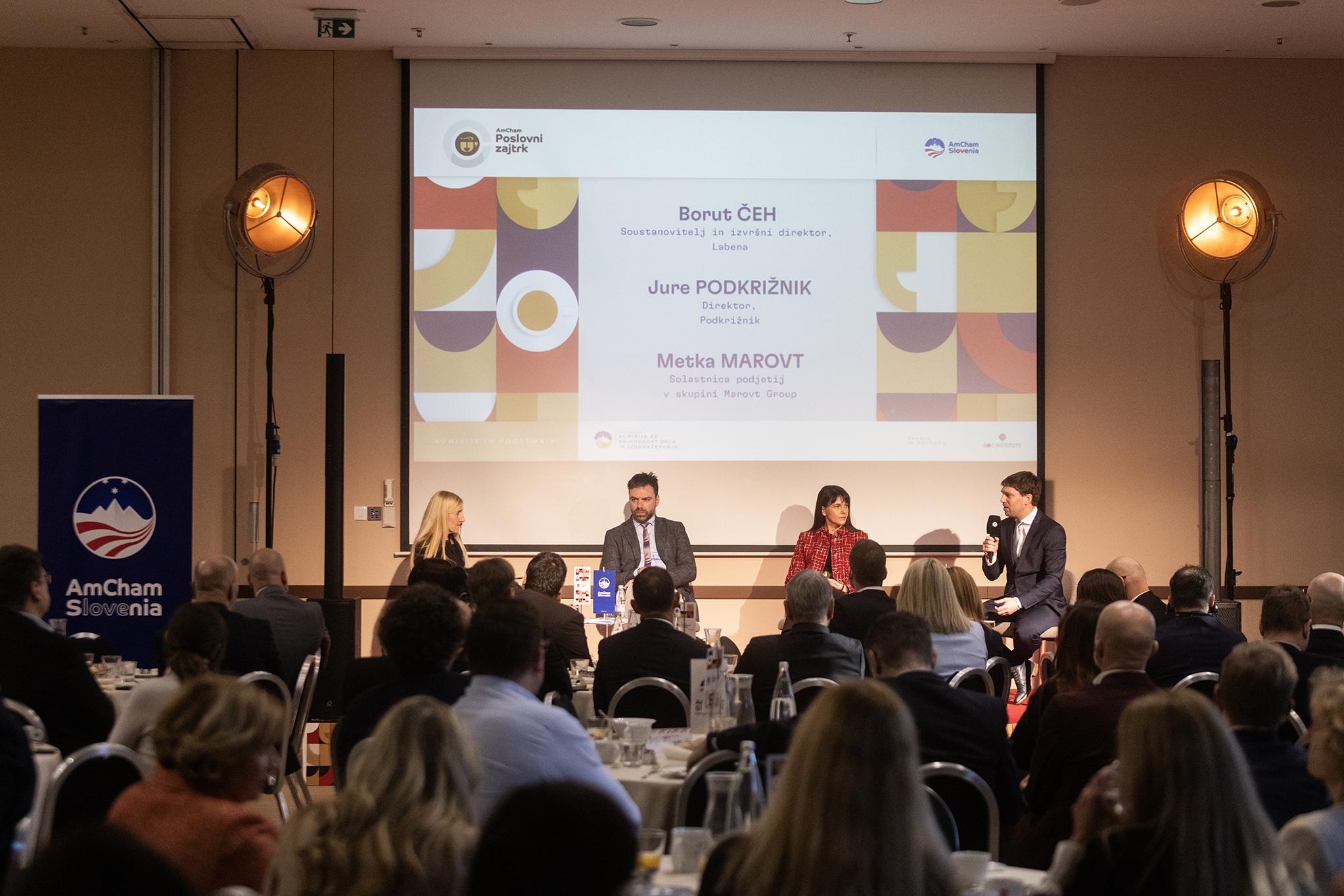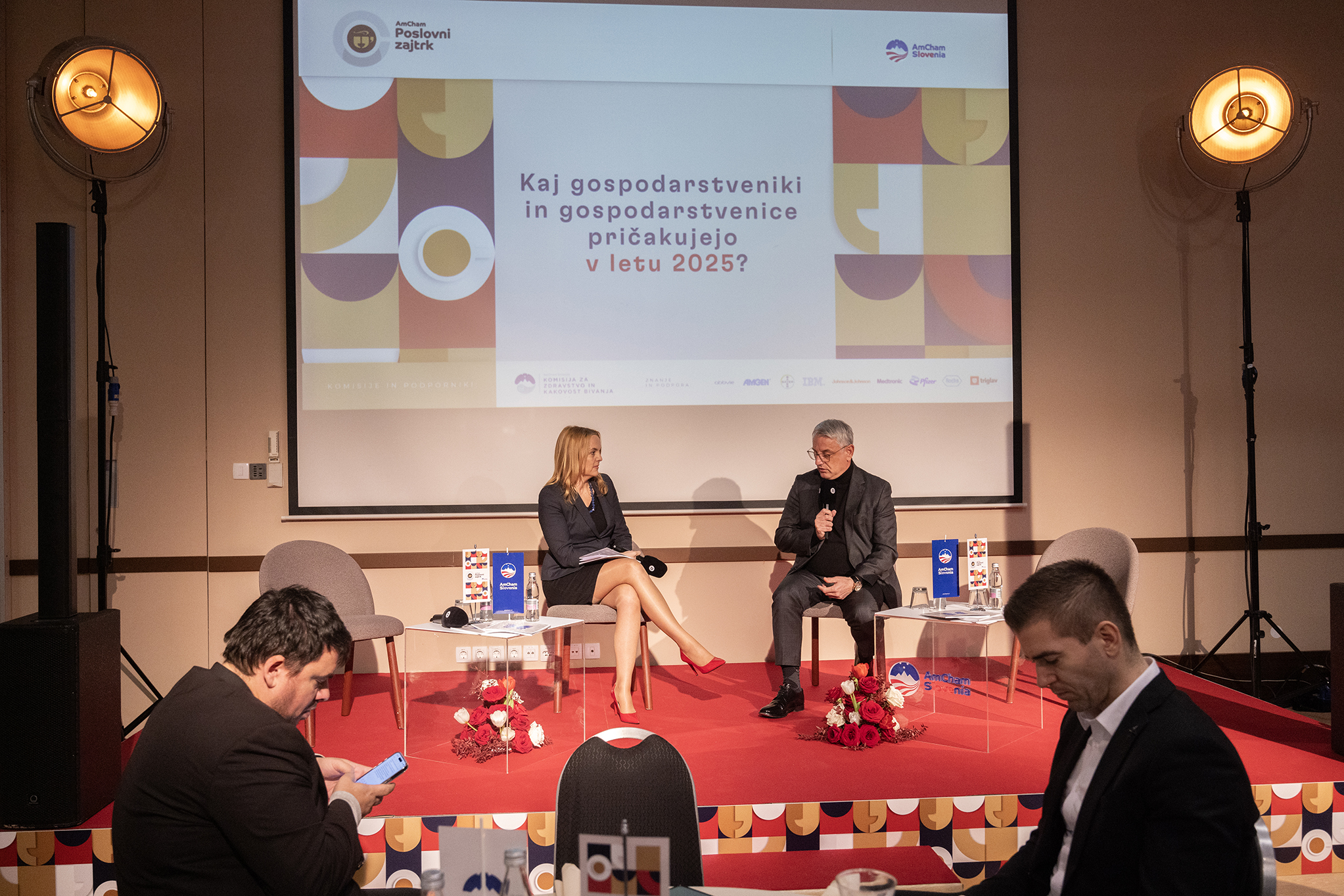First AmCham Business Breakfast of 2025
At the February AmCham Business Breakfast, the first AmCham Business Breakfast of 2025, business leaders and a government representative agreed that this year will be crucial for the competitiveness of the European economy. The event sparked discussions on the impact of European and global economic trends on Slovenia, competitiveness, the importance of a predictable business environment, political stability, and technological breakthroughs. Speakers agreed that trade wars, regulations, talent shortages, and technological shifts demand swift and strategic decisions.
The Minister of Economy, Tourism, and Sport, Matjaž Han, emphasized that the influence of global trade policies, particularly decisions made by the U.S., will require greater unity and political stability in Europe. “The European economy will remain competitive only if we make smart decisions and avoid excessive regulation. The reality is that we are already lagging behind the U.S. and China,” he warned. He added that Slovenia must ensure dialogue between politics and business, maintain a predictable tax environment, decide what kind of country it wants to be, and distinguish between good and ethical entrepreneurs and bad practices.
The presidents of the Gospodarski krog also shared their wishes and expectations for the economy in 2025. Watch the discussion:
"If Europe does not wake up, we will become a 'butler economy'."
The President of AmCham Slovenia, Enzo Smrekar, Vice President for Savory Spreads, Donat Mg, and Internationalization at Atlantic Grupa, and CEO of Atlantic Droga Kolinska, also stressed the need for greater economic flexibility and strategic thinking. “Europe is too preoccupied with regulations. It is not too late yet, but if we do not wake up quickly, we will soon become a butler economy,” he warned. He also highlighted the urgent need for adjustments in education, as Europe lags behind in key future competencies. “Only when we face trade wars and similar challenges will we realize how crucial self-sufficiency is,” he added.
"Even the most patriotic entrepreneurs will move their business where it makes sense."
Eva McLellan, Vice President of AmCham Slovenia and General Manager of Roche Slovenia, pointed out the volatility of the economy and the necessity of long-term investments. “Europe must become attractive for science, talent, and research,” she emphasized, highlighting the crucial role of data in decision-making. “For example, understanding that the occurrence of certain diseases in a society directly affects GDP,” she explained.
She added that business decisions are based on real economic conditions: “Even the most patriotic entrepreneurs will move their business operations to where it makes the most sense. Europe must remain connected and create a stable, competitive business environment that transcends short-term political cycles.”
"Young people must understand how digital (il)literacy can impact their future."
Beno Ceglar, Vice President of AmCham Slovenia and General Manager of NIL, discussed the importance of AI and digitalization for Slovenia’s competitiveness: “Slovenia is highly export-oriented, so we must strengthen our international competitiveness,” he stressed. One of the key challenges remains the shortage of talent. He also pointed out the critical importance of digital literacy among young people and the necessity of introducing mandatory computer science and informatics courses in elementary and secondary schools: “Young people must understand how digital (il)literacy can impact their future.” “We want to be a good practice example in integrating artificial intelligence into business processes,” he concluded.
"Change is the only constant. Businesses must adapt quickly, while the state must ensure a predictable regulatory environment."
Jure Podkrižnik, Director of Podkrižnik d.o.o., addressed the topic of work ethics and ambition, noting that too little attention is given to the fact that sick leave in Europe is at 5%, which directly affects productivity: “We must establish an environment where work and ambition are values,” he emphasized, adding that both the economy and public administration must jointly create conditions that will allow Europe to regain its position as a leading economic force.
Borut Čeh, Co-Founder and CEO of Labena, similarly noted that the key challenge in 2025 will be companies adapting to new circumstances: “Change is the only constant. Businesses must adapt quickly, while the state must ensure a predictable regulatory environment.” As one of the founding partners, he also spoke about the Biotech Hills initiative, which aims for Slovenia to become recognized as a hub for biotechnological innovation by 2030.
Metka Marovt, a family entrepreneur and co-owner of companies within the Marovt Group, shared her experiences in the industry and warned that due to turbulent conditions, internal reserves in many companies have already been exhausted. She remarked: “Young people are eager, knowledgeable, and want to work—let’s create the conditions that allow them to do so.”
AmCham Advocacy: Working Towards a Better Business and Living Environment in Slovenia
At today’s first AmCham Business Breakfast of 2025, we also presented the new AmCham Advocacy brochure. Download HERE.
